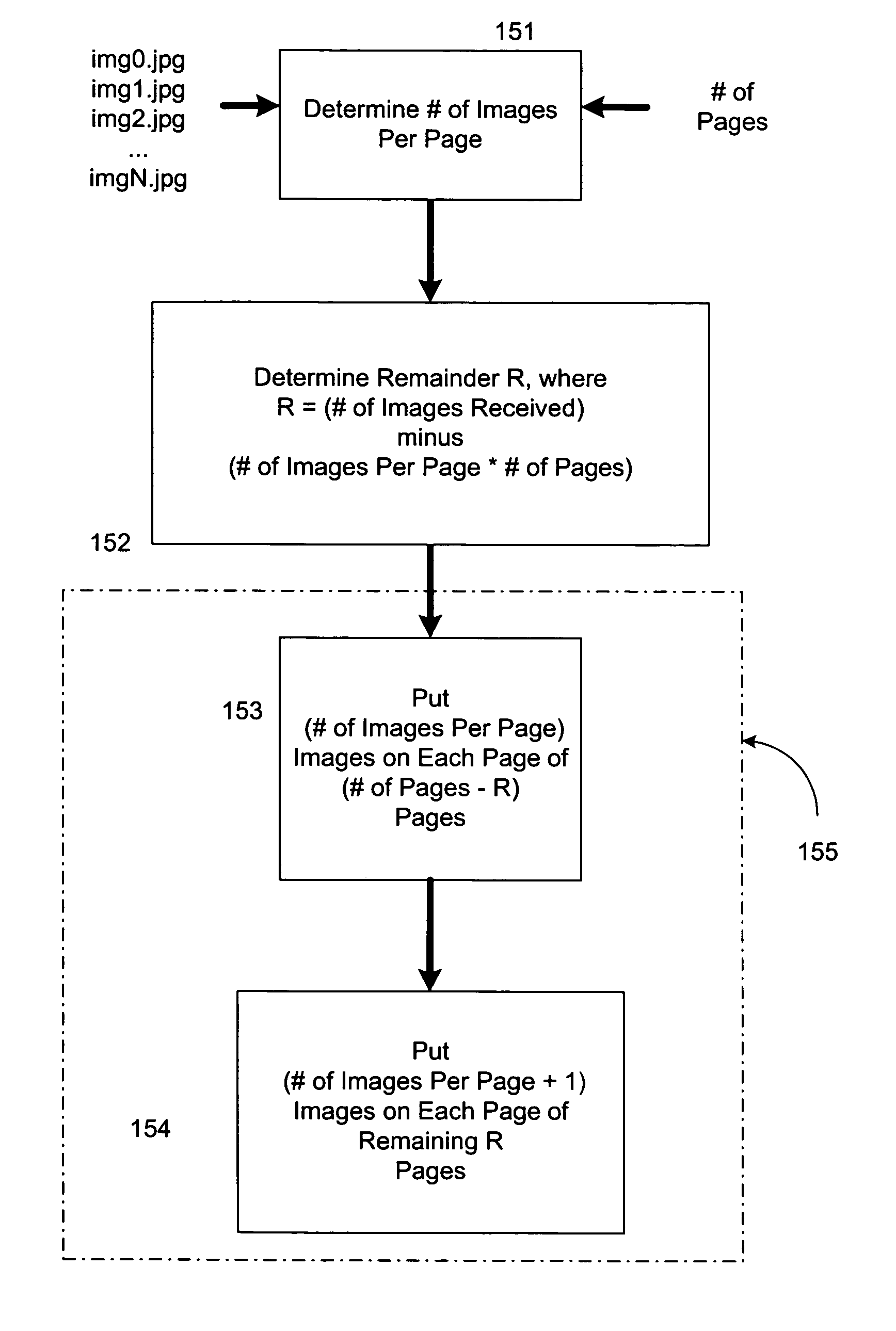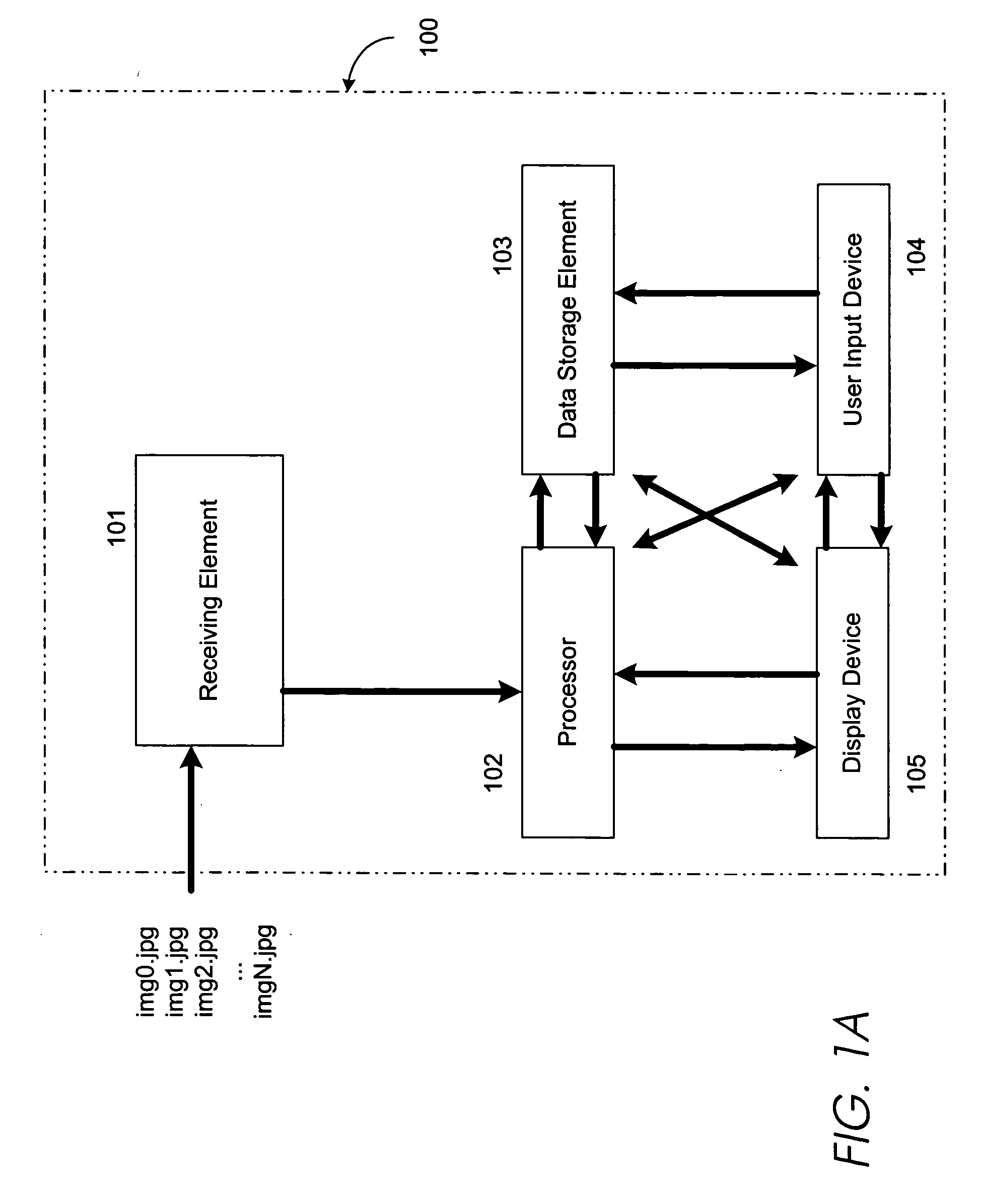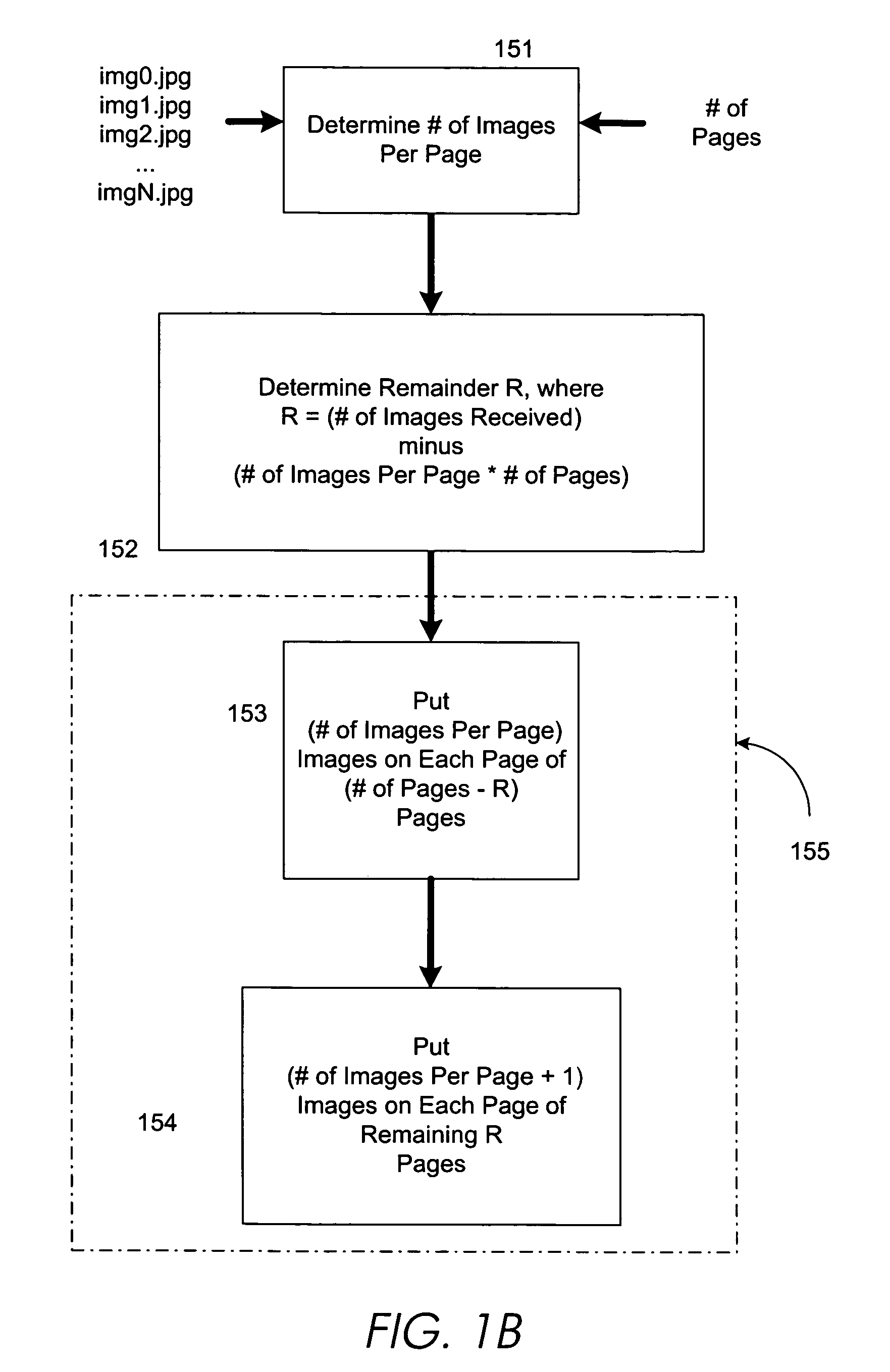Method for assigning graphical images to pages
- Summary
- Abstract
- Description
- Claims
- Application Information
AI Technical Summary
Benefits of technology
Problems solved by technology
Method used
Image
Examples
first embodiment
[0031] In the present invention, the user provides the image list and the number of pages in the output. The system first receives the ordered list of images including a number of images I, and subsequently determines the number of images per page Ni, equal to the number of images I divided by the specified number of pages P and rounded down. The number of images per page Ni is a base number of images per page, and a remainder could be distributed to the pages. For example, a listing of 26 images may be received, with five pages requested. The system then determines the number of images per page Ni is I / P, or 26 / 5, or 5.2, resulting in five pages of five images, with one additional image leftover. The system then divides the image list into five pages of five images and distributes the 26th image to one of the five pages. This can be done either deterministically, such as on the first page or pages, last page or pages, or in some other relatively fixed manner, or randomly, such as b...
second embodiment
[0035] the present invention allows the user to specify a desired number of images per page, or a desired maximum and minimum numbers of images per page. A user may supply a total number of images via the image list and a desired number of images per page, Ni. Alternately, the user may specify a minimum and maximum number of images per page, and Ni may be established according to the equation:
Ni=(min specified+max specified) / 2 (1)
[0036] As an example, a user may provide a quantity of images in an image list and specify six images per page, an Ni of six. Alternately, the user may provide a quantity of images in an image list and indicate the maximum number of images per page is eight, and the minimum is six, resulting in an Ni of seven from Equation (1). The actual number of images in the image list may be greater than Ni. If so, the system establishes the number of pages P by rounding the quotient of the number of images divided by Ni. In the example of the Ni of six, if 31 images...
third embodiment
[0042]FIG. 3 illustrates one design of this third embodiment of the invention. From FIG. 3, point 301 calls for the user to specify the minimum and maximum number of images per page. Point 302 establishes the pointer at the first image in the received image list. Point 303 submits all possible quantities, from minimum to maximum as specified by the user in point 301, to the page layout technique. Point 304 determines a score for each possible quantity using the page layout technique, and point 305 selects the page layout and quantity of images having the best score from point 304. Point 306 moves the pointer to the next available image, and the process repeats as shown until no further images are available.
PUM
 Login to View More
Login to View More Abstract
Description
Claims
Application Information
 Login to View More
Login to View More - R&D
- Intellectual Property
- Life Sciences
- Materials
- Tech Scout
- Unparalleled Data Quality
- Higher Quality Content
- 60% Fewer Hallucinations
Browse by: Latest US Patents, China's latest patents, Technical Efficacy Thesaurus, Application Domain, Technology Topic, Popular Technical Reports.
© 2025 PatSnap. All rights reserved.Legal|Privacy policy|Modern Slavery Act Transparency Statement|Sitemap|About US| Contact US: help@patsnap.com



